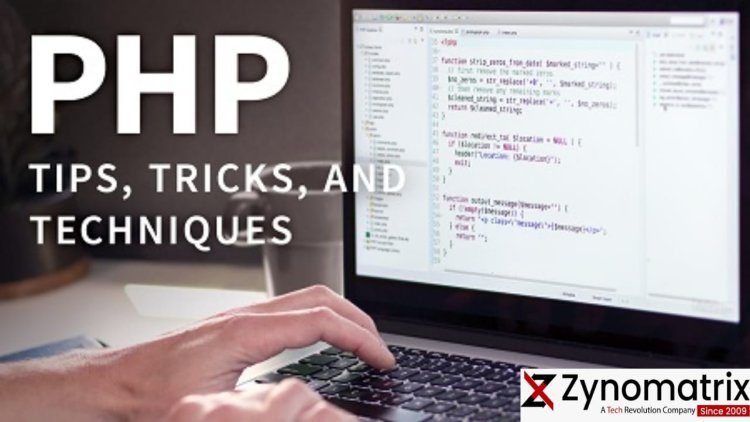" Best Tips And Tricks For PHP "
PHP, a versatile and widely-used programming language, offers a multitude of features and functionalities that can greatly enhance your PHP development skills. In this blog series, we will explore a range of PHP tips and tricks that will help you become a more proficient and efficient PHP developer. From beginner-friendly techniques to advanced concepts, this series aims to provide practical insights and guidance to improve your PHP coding practices. We will cover various topics, including debugging, performance optimization, security measures, and best coding practices.

Introduction:
PHP, a popular programming language for web development, offers a vast array of functionalities and features that can make your coding experience more efficient, secure, and optimized. In this blog series, we will explore a variety of PHP tips and tricks to help you improve your PHP coding skills and enhance your development workflow. Whether you are a beginner looking to expand your PHP knowledge or an experienced developer seeking advanced techniques, this series will provide valuable insights and practical guidance. From debugging and performance optimization to security measures and efficient coding practices, we will cover a wide range of topics to help you level up your PHP game.
Debugging Techniques in PHP: Share tips on effective debugging in PHP, including using error reporting, log files, and debugging tools to identify and resolve issues in your code.
Performance Optimization: Provide tips and best practices for optimizing the performance of PHP applications, such as caching strategies, database query optimization, and reducing unnecessary code execution.
Security Measures in PHP: Discuss essential security practices for PHP applications, including input validation, SQL injection prevention, cross-site scripting (XSS) mitigation, and protecting against session hijacking.
Working with Dates and Times: Share tips on manipulating dates and times in PHP, including formatting, converting time zones, calculating differences, and working with timestamps.
File Handling: Provide tips on effective file handling in PHP, covering tasks such as reading and writing files, file uploads, file permissions, and directory manipulation.
Error Handling and Exception Handling: Discuss best practices for handling errors and exceptions in PHP, including custom error handling, exception handling, and error reporting strategies.
Database Connectivity and ORM: Share tips on connecting to databases in PHP using PDO or other database libraries, and discuss the benefits of using Object-Relational Mapping (ORM) frameworks like Eloquent or Doctrine.
Working with Arrays and Data Structures: Provide tips on working with arrays and data structures in PHP, including sorting, searching, merging, filtering, and manipulating multidimensional arrays.
String Manipulation: Share tips on effective string manipulation in PHP, covering topics such as concatenation, formatting, encoding, parsing, and regular expressions.
Efficient Memory Management: Discuss techniques for optimizing memory usage in PHP, including variable scoping, memory management functions, and resource cleanup.
Error Reporting and Logging: Explore techniques for effective error reporting and logging in PHP, including configuring error reporting levels, logging errors to files or databases, and analyzing error logs.
Working with APIs: Provide tips on consuming and interacting with APIs in PHP, covering authentication, making API requests, handling responses, and error handling.
Code Organization and Maintainability: Share tips on organizing PHP code for better maintainability, including using namespaces, separating concerns with classes and functions, and following coding standards and conventions.
Testing and Quality Assurance: Discuss the importance of testing in PHP development and share tips on writing unit tests, test automation, and utilizing testing frameworks like PHPUnit.
Documentation and Code Comments: Explore the significance of documentation and code comments in PHP projects, providing tips on writing clear and informative documentation to aid in project maintenance and collaboration.
What's Your Reaction?





















